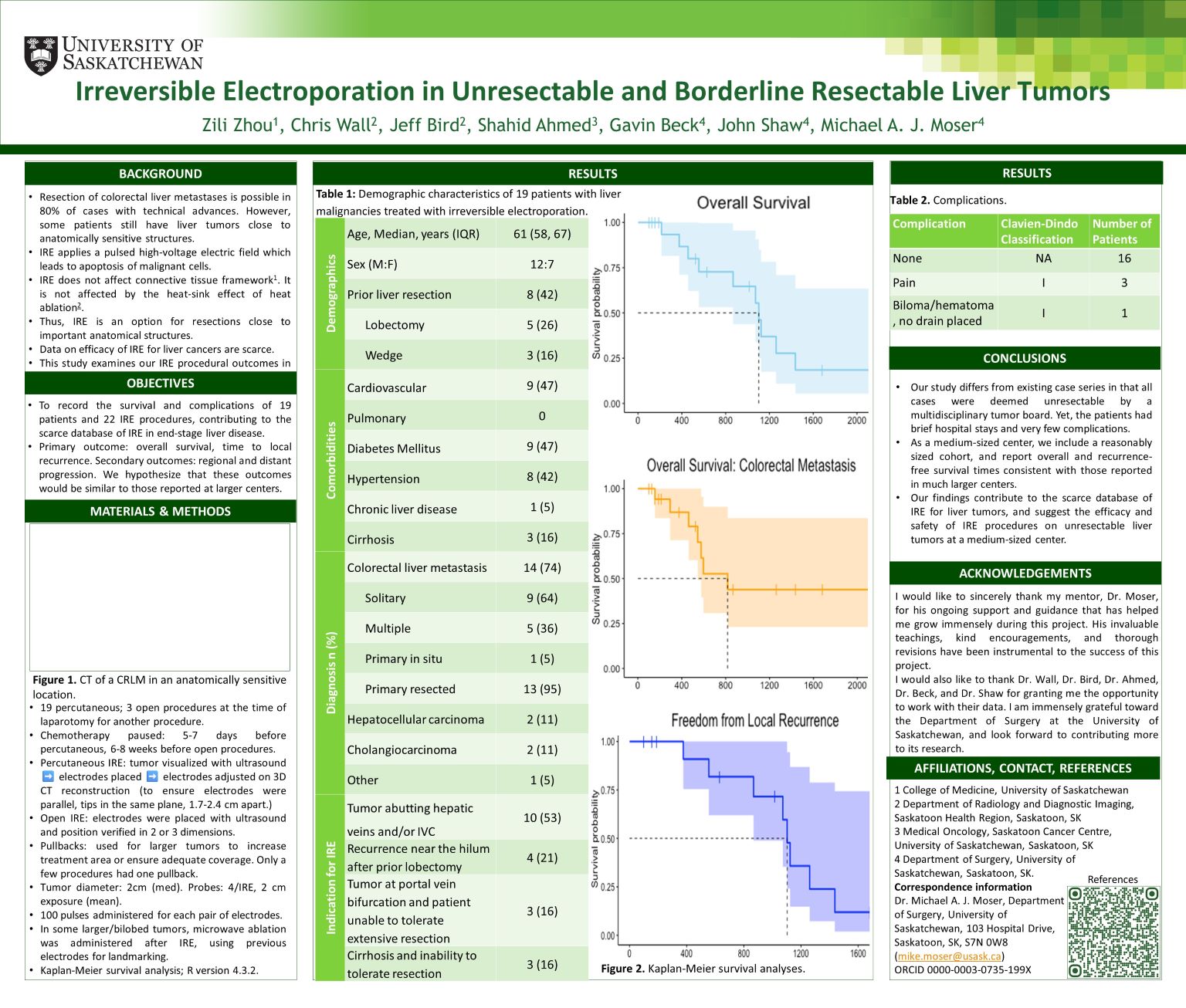
Irreversible Electroporation in Unresectable and Borderline Resectable Liver Tumors
Zili Zhou
Introduction: While over 80% of colorectal liver metastases are currently resectable with technical advances, some patients still have liver cancers that are unresectable due to their proximity to anatomically sensitive structures. Irreversible electroporation (IRE), a non-thermal ablation technique, offers an option for these patients.
Methods: We recorded the survival and complications of 19 patients undergoing 22 IRE procedures for unresectable liver cancers between July 2015 and February 2024. All cases were deemed unresectable by a multidisciplinary tumor board due to abutment of hepatic veins or IVC (n=10), recurrence near the hilum after lobectomy (n=4), involvement of the portal vein bifurcation (n=3), and cirrhosis contraindicating resection (n=3).
Results: Patients had a median overall survival of 1103 days from the time of the procedure, while patients with colorectal liver metastases had a median survival of 1470 days. Local recurrence occurred in 7 of 22 (32%) cases, with a median recurrence-free survival of 818 days. Complications were infrequent; 3 patients reporting pain beyond 24 hours, but all settled without the need for any intervention.
Discussion: Our medium-sized center achieved outcomes comparable to those reported in much larger centers, further supporting the use of IRE in managing unresectable liver tumors in anatomically sensitive locations.
